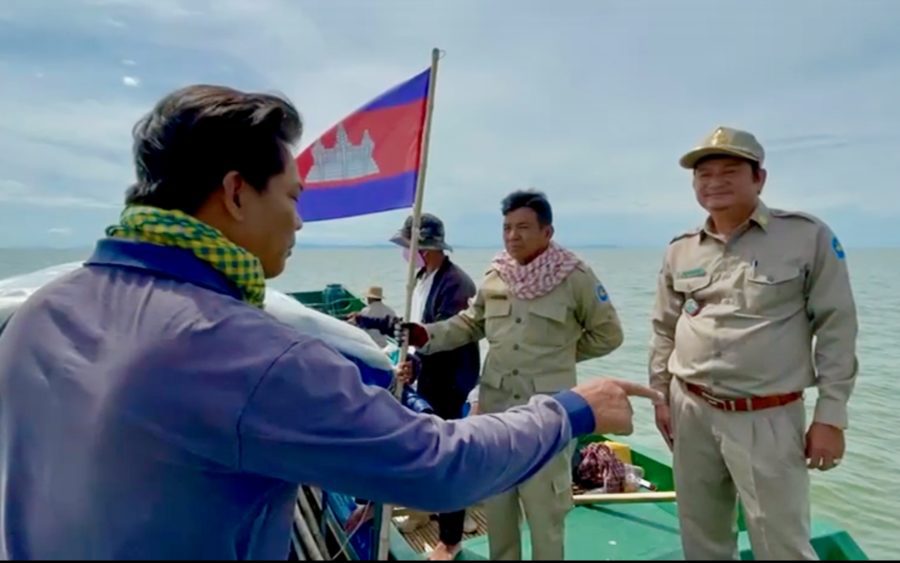The government’s top academic said he knew he needed to quickly inform the premier when he saw the urgency of deforestation around the Tonle Sap lake last month.
“If we had waited until the project finished, the flooded forest would have been gone,” said Sok Touch, president of the Royal Academy of Cambodia, the country’s national university.
The research was scheduled to be completed next year.
The study began a year ago, Touch said, with a review of prior research on the loss of flooded forests around the lake — “all relevant documents, both international and local.”
“Then we came to study the real thing that was happening,” Touch said. It was worse than papers had suggested. “We saw that the deforestation of flooded forests was very fast, so we tried to make the report more quickly. … We decided to announce it quickly.”
On Sunday, Prime Minister Hun Sen, citing Touch’s research, ordered urgent and immediate action to reclaim state forestry land around the Tonle Sap. He accused one former Kampong Chhnang governor of appropriating 2,000 hectares. There were many other “bad” officials who had taken advantage of the distractions of Covid-19 to encroach on state land, the prime minister said.
“These people are no longer worthy of being officers; they are better off in prison than officers,” Hun Sen said in a public message on Sunday, ordering the use of military force and helicopters. “No matter what the cost is, we must get the land back and these lands must only [be used] for the planting of seedlings, reforestation, and maintain it for spawning fish in the Tonle Sap.”
Government officials sprung into immediate, visible action, with the military police posting several albums of photos to its Facebook page showing large uniformed units lined up in formation, armed with rifles.
The current Kampong Chhnang governor told VOD on Monday that his officers had already reclaimed the 2,000 hectares brought up by Hun Sen, and would replant trees.
Kampong Chhnang deputy governor Srun Samrithy said on Tuesday that authorities would issue more details about their actions in two or three days. “Right now, we are identifying those who are the landowners,” he told VOD, adding that officials had been visiting several districts around the lake.
Environmental groups, including the Wildlife Conservation Society, have previously warned of severe threats to the Tonle Sap’s floodplains. When the lake floods surrounding areas, the vegetation acts like a coral reef and “nurtures an incredible abundance of fish” — one of the world’s largest inland fisheries, the group has said.
Touch, the academic, said his research findings were not ready yet for public consumption. He had still only completed two out of six stages of his research, he said.
But he stressed the urgency of the situation, and suggested that he himself was also in danger by tackling the issue of land loss and potential official culpability.
“I have to use my life for studying this as I have no guards,” Touch said.













